The Zaydi Shiite Houthi rebels in Yemen—with Iranian assistance—are escalating their missile attacks on Saudi Arabia. The dangers of the conflict broadening are growing and the chances for a peaceful resolution of the war are slim.
This week marks the third anniversary of the Saudi intervention in Yemen’s civil war. Riyadh and its allies stepped in to prevent the Houthis from taking over the entire country. To mark the anniversary, the Houthis launched seven ballistic missiles at Saudi cities, including three at Riyadh. Saudi Patriot air defense missiles shot down the attacking missiles, but falling debris still caused at least one fatality.
The Houthis lauded the missile barrage as a response to Saudi-American “aggression.” So far, the Houthis have launched over 100 missiles at Saudi cities and installations. Riyadh was first struck last November. The rebels say they are targeting the capital’s international airport and the royal palace. The rebels also claim to have targeted Abu Dhabi once. The Yemeni missiles are derivatives of the Soviet-designed Scud missile, which Russia widely exported during the Cold War.
Yemen acquired Scuds from North Korea. They were extensively used in Yemen’s previous civil war, in the mid-1990s, and are notoriously inaccurate. In 1991, Iraq launched 80 enhanced-range Scuds at Israel and Saudi Arabia. Only two Israelis and one Saudi died in the attacks. But one missile hit a U.S. Army barracks in Dhahran and killed 28 American soldiers. Sooner or later, a Houthi missile is likely to inflict a similar painful toil.
Of course, the Houthis are retaliating for Saudi air strikes on Yemen. Amnesty International has just released a report that says at least three dozen Saudi air strikes are potential war crimes because they targeted civilians. The Saudi war has become a humanitarian catastrophe, according to the United Nations.
Senior American intelligence officials tell me they are convinced that the Iranians are assisting the Yemenis with expertise, equipment, and advisers. They also acknowledge that despite a major effort, they cannot halt the smuggling of Iranian and Hezbollah aid to the Houthis. The administration has made its case public in the U.N. Russia has vetoed a resolution that would have sanctioned Iran for its assistance to the rebels. Iran not only denies any wrongdoing, it claims the Saudi embargo prevents the shipment of any arms to the Houthis. Media outlets close to the Iranian Revolutionary Guard Corps have openly praised the Houthi attacks.
The Saudi media has said the recent missile barrage underscores that they need a military victory in Yemen and that peace negotiations are useless unless they lead to complete disarmament of the Houthis. The rebels will not agree to such demands. The Saudi leadership has staked its credibility on prevailing in Yemen.
 After the November attack on Riyadh, the Saudis tightened the blockade of the rebel-controlled northwest Yemen. The humanitarian catastrophe got significantly worse, with millions of Yemenis without food and medicine. Under pressure from the Trump administration, they have loosened some steps since. The blockade and air war continue. The Saudis rightly say that they are under attack by Iranian allies and they consider Tehran responsible.
After the November attack on Riyadh, the Saudis tightened the blockade of the rebel-controlled northwest Yemen. The humanitarian catastrophe got significantly worse, with millions of Yemenis without food and medicine. Under pressure from the Trump administration, they have loosened some steps since. The blockade and air war continue. The Saudis rightly say that they are under attack by Iranian allies and they consider Tehran responsible.
But neither Iran nor Saudi Arabia wants a direct war between them, which would be devastating for both economies. Iran is quite pleased to have the kingdom bogged down in a hugely expensive quagmire. The Saudis know that even with the third-largest military budget in the world in 2017, they would be hard-put to defend themselves against Iran without American assistance.
So for now the missile war is escalating. A missile strike that kills dozens or hundreds of Saudis and/or foreign nationals in the kingdom may only be a matter of time, in effect a ticking time bomb.
The Brookings Institution is committed to quality, independence, and impact.
We are supported by a diverse array of funders. In line with our values and policies, each Brookings publication represents the sole views of its author(s).

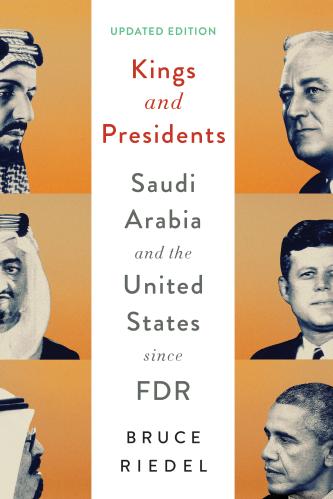
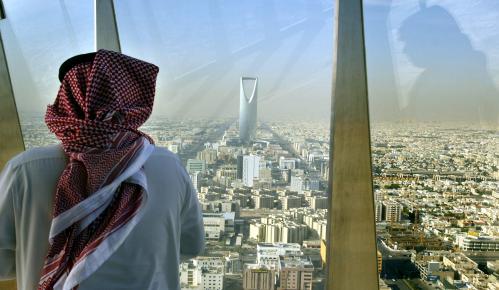
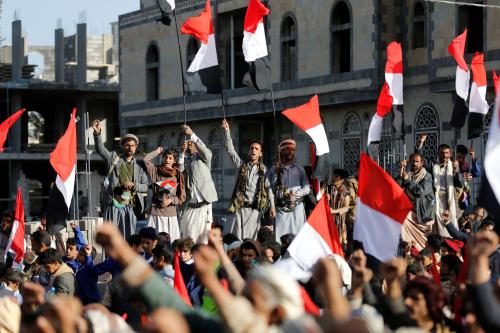
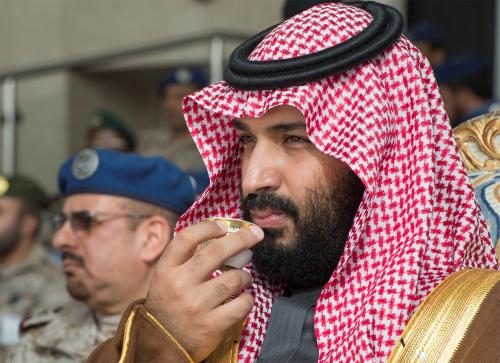

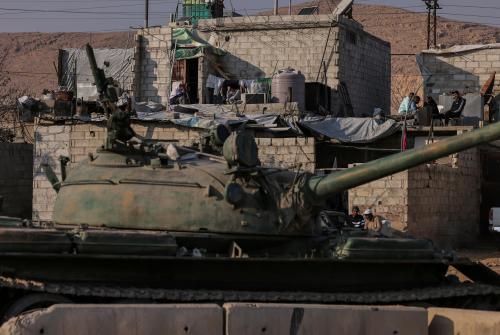
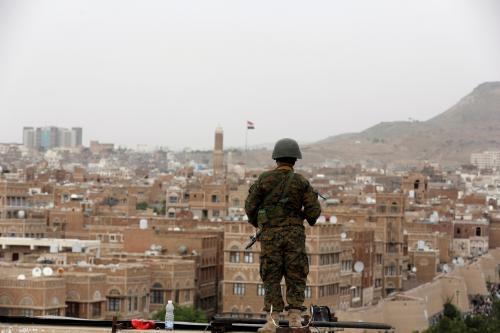
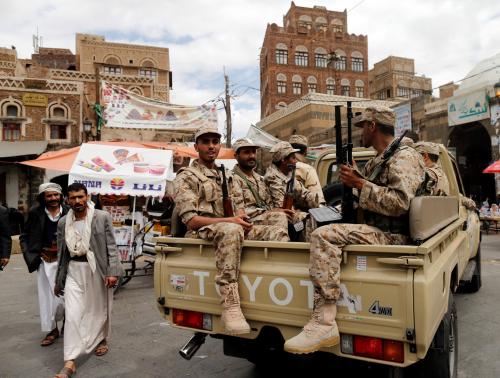
Commentary
What you need to know about the latest Houthi attack on Riyadh
March 27, 2018